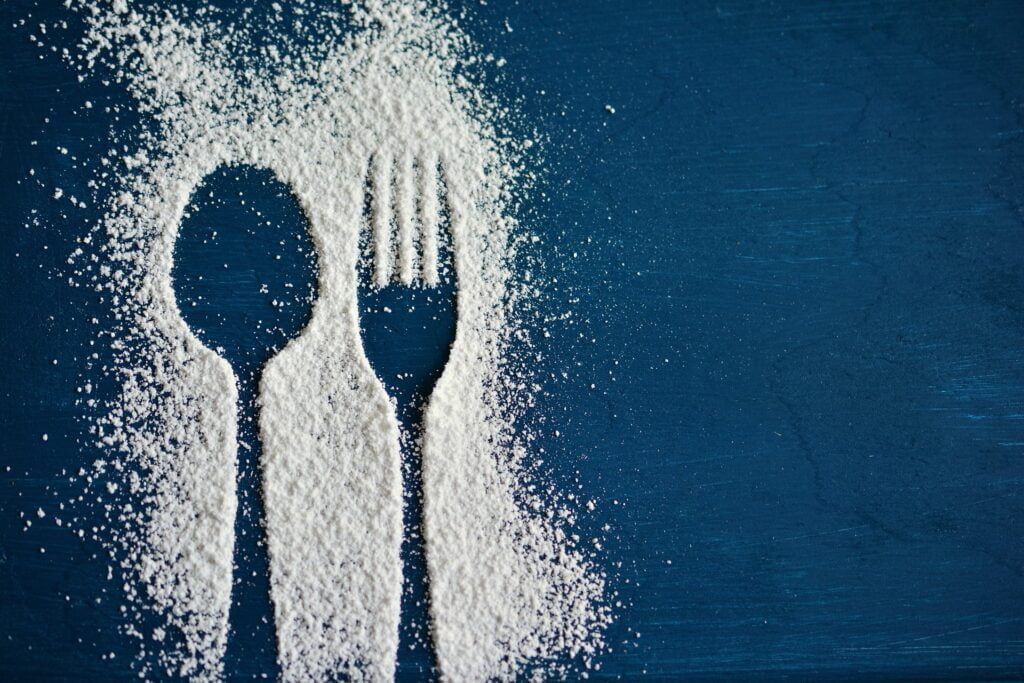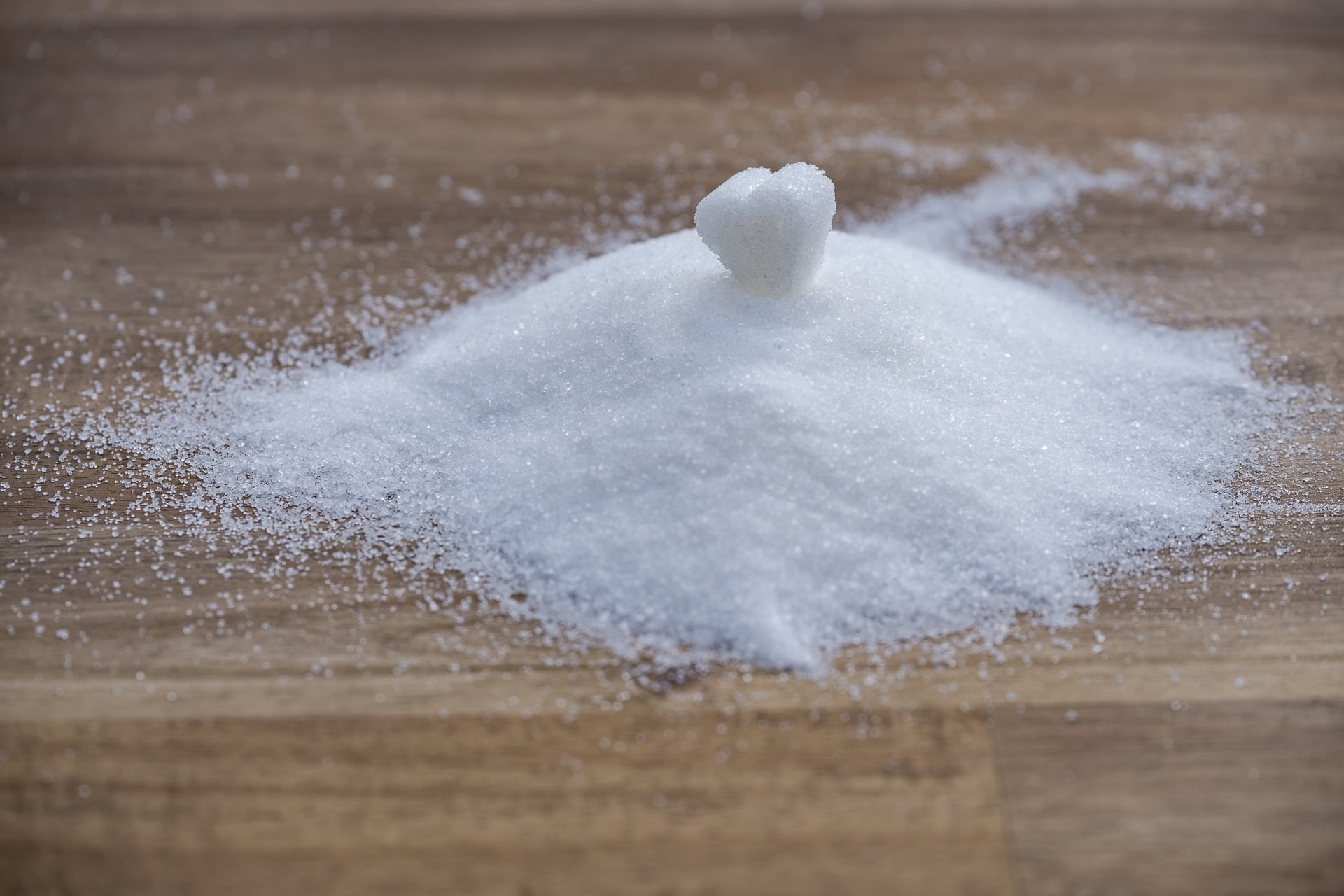The truth about sugar
what sugar does the less you’re going to consume it I watch people all the time around me just consuming massive amounts of sugar and I’m like oh my gosh how could you possibly do that well it has to do with awareness they just don’t know the effects now we probably all

The dangers of sugar
know the effects with weight gain anddental decay and fatty liver and high cholesterol and acne and high blood pressure increase candida infections andlowered immune system
Side effects of sugar
But there’s some other things inside your body that you need to know about and it all relates to most diseases are metabolic diseases what does that mean metabolic diseases it has to do with your metabolism and when we’re talking about metabolism we’re specifically talking about this one
tructure in our cells called the mitochondria mitochondrial dysfunction is responsiblefor the majority of non-infectious diseases dysfunctional mitochondria arewhat’s behind cardiovascular disease cancer in factthe cancer you have normal cells thatturn into cancer cells because ofdamaged mitochondria it’s impossible toget cancer unless you have damage to themitochondria Alzheimer’s which is Type 3diabetes kidney liver disease all of these General metabolic diseasesif you look closely at what’s happeningas a Common Thread deep inside the cellwe have dysfunctional mitochondria thereare a lot of things that destroy themitochondria but at the top of the listis sugar and foods that turn into sugarvery quickly like refined carbohydrates like starches breads pasta cerealcrackers biscuits waffles pancakesmuffins things like that
When we talk about sugar the majority sugar inthe U.S is beet sugar and the majorityof beets grown in the U.S are GMO so wenot only have this refined sugar we havethisGMO type sugar which has traces ofglyphosate which is an herbicide whichI’m not going to even go there but Ijust want to make you aware of thatalso the amount of fructose that weconsume from drinks sodas high fructosecorn syrup is a lot different thanglucose okay so we have fructose whichis only metabolized by your liver allthe other cells in the body can’t metabolize this this fructose so whenyou’re consuming large amounts of
Fructose you are over whelming the liverand overw helming the mitochondria deepin inside the liver and so if we comparefructose to glucose glucose is actuallymuch better than fructose but you haveto realize even table sugar is halfglucose and half fructose honey the samething and when we consume this refinedsugar it’s very very unnatural because we don’t have the normal antioxidants that come from like the natural sugarthat with sugar cane or even that comewith fruit when you consume fruits whichis high in fructose so how does tha trelate to the mitochondria
well this is what happens when you consume a lot of sugar glucose or things that turn into sugar what happens to themitochondria is becomes damaged okay nowthe purpose of the mitochondria is toturn fuel into energy with the help ofoxygenand so now with a dysfunctionalmitochondria we now create a hypoxic lowlevel oxygen State and from that startsto be created other oxygen moleculesthat are very reactive to our bodies without getting too technical thecategory of these things are called Ross
I don’t want to get intocomplexities but just realize that whenyou have a mitochondria that is not ableto use the oxygen you start developing alot of oxidative free radicals and a lotof things that create more damage andthey’re crated because we don’t havethat oxygen so their derivatives ofoxygen that are highly reactive anddamaging to your cells and so it’s those oxidating factors that create the complications of glucose they create thedamage from diabetes for example theycreate mutations inside the DNA of them itochondria mitochondria very interesting they have their own DNA andreal quick the history of mitochondriais their bacterial derived a long timeago a bacteria morphed with cells toform this symbiotic relationship that
Apparently over a long period of timeended up in our bodies so them itochondria the energy factories in ourcells actually originated from bacteria and apparently we formed an agreement with them that they specialize inproducing energy and we’ll feed themokay we’ll eat and feed them and we’llgive them a home but they give this thisFocus Machinery to produce energy andthey also have their own DNA but when weconsume too much sugar we get damage ofthe mitochondria we get hypoxia lack ofoxygen we get uh mutation within the DNAof the mitochondria we get decreasednumbers of mitochondria we get a lack offuel produced by the mitochondriastarving off your cell cells as inAlzheimer’s for example if the
Mitochondria can’t work we can’t producefuel for the cells and what happens incancer is the cell as a survivalmechanism gets its fuel outside themitochondriain other places a different pathway it’svery rudimentary it’s very uh crude andthere’s not much energy generated fromthat and so the cancer cells have tocompensate by hogging up as much fuel asthey can and sugar is one of the fuelsthat they go after hardcore but there’sa tremendous amount of oxidative stressthey call it that’s produced from these damaged mitochondria and the oxidativestress is kind of like this high levelof oxidation with at the same time a lowlevel of antioxidants and this is whywhen you consume a lot of refinedcarbohydrates you’re getting in thisrefinement process a lot of sugar butwithout all the protective mechanismsthat normally come in nature likeantioxidants that can normally counterall this oxidation and so that equalsinflammation cell damage and especiallydamage to the mitochondria itselfthere’s something else that’s reallyinteresting that happens when youconsume sugar you get a decrease inwhat’s called mitophy now what ismitophagy well there’s a conditioncalled autophagy which is the recyclingof old damaged cells and that’s a goodthing because you your body goes intothe state where it can clean up damagedmitochondria and replace them with newmitochondria and then that that’s a
Really good thing to prevent cancer andavoid all the complications that happenwith damaged mitochondriabut sugar inhibits that ability for yourbody to recycle mitochondria and maybeyou’ve heard of the tests from diabetes it’s called A1C right that measures theamount of damaged protein in your bloodthat’s heat damage hemoglobinbecause when you combine all that highlevel of sugar with the protein youdamage it that’s called glycation sothat glycated protein that damagedprotein can’t be cleaned up aseffectively with the sugar in yourbloodstream so that leads to a wholebunch of problems and then now we have ahypoxic state in the mitochondria whichincreases the risk for getting cancer itnow has to generate a lot of lactic acidthat can build up in your cells you geta severe deficiency of thymine B1
B1
now B1 is probably one of the mostimportant nutrients in the mitochondriato allow everything to work correctlythe more sugar you consume the more B1or thymine that you need and so when youconsume a lot of sugar you deplete yourB1 reserves and what comes next is isdevastating especially in the case of adiabetic their complication isperipheral neuropathy mainly due to thisB1 deficiency that creates a lot ofnerve damage and so this is why one ofthe great remedies for peripheralneuropathy whichis the bottom of your feet becoming numbor tingling or burning or your hands istaking B1 B1 will pretty easily resolvethat that condition or at least that complication from the high levels ofsugar but also with a B1 deficiencythere’s a lot of other problems thatoccur too an anxiety state a lot ofnervous tension a lot of excessivethinking insomnia nerve damage in other parts of the body and also damage incertain parts of the brain that have todo with memory and then another thingthat gets depleted in the mitochondriafrom eating a lot of refined sugar is
zinc and zinc is also needed to make sure your mitochondria are are bulletproofed or protected and without
zinc you get dysfunctional mitochondria the next time you eat that Krispy Kreme donut or that candy bar you have to just be aware of what the sugar does to the deeper mitochondria in the cells that sets your body up for a Cascade of issues down the road so
How to recover after sugar consumption
the mitochondria well the number one thing you should do is go on a low carb diet
it’s called the ketogenic diet cut out sugar cut out these refined carbs you’re going to feel better immediately and you’ll probably find that you won’t be depleting your B1 anymore or your zinc anymore and also there’s other nutrients that you won’t be depleting anymore too the next thing is exercise especially High intense interval training but other types of exercise will also be
beneficial to boost your mitochondria and this brings up another point about athletes that are doing all sorts of like long distance marathons or triathlons they typically consume a lot of carbohydrates and a lot of sugar
Sugar well exercise can overcompensate and exercise alone stimulates the mitochondria exercise protects the mitochondria now know something that you can do to continue to eat sugar because I know a lot of athletes that when they consume the sugar they have a lot of side effects they have a lot of problems and complications but the point is that because exercise strengthens the mitochondria it tends to nullify some of the complications from the high level of sugar now you might also be thinking well what about the people a hundred years ago they were a lot healthier than we are now and yes they were healthier but they weren’t a lot healthier but I will say in the last probably 40 50 years the amount of sugar has increased the amount of fructose has increased the amount of snacking has increased the amount of added sugar has increased and all that has been devastating but think about even like several thousand years ago where people eating healthier back then not necessarily they’ve extracted these
Mummies and they’ve looked at the teethand the arteries and the bones ofcertain mummified bodies and they hadperiodontal disease they had cavitiesthey had problems with their teethproblems with arthritis and they consumed a lot of flower products breadsso this is not necessarily just a newthing that’s been going on for a longtime now another thing that can helpimprove your mitochondria if we were tolook at like cold water immersion orcold therapy it’s the cold therapy okaythey’re very uncomfortable taking thecold shower or the cold bath immersion that can stimulate your mitochondria waymore than heat therapy or saunas cansimply because of how uncomfortable itis and also how our bodies weredeveloped to survive during winter timeand actually increase more mitochondriawhen we get cold nowadays everything’sbecome very very passive and comfortableokay we get to eat to 24 7 we get tostay in a really nice environment insideour homes not out in the sun and by theway being exposed to the sun doesincrease your mitochondria and noteating so frequently as in fastinggreatly stimulates your mitochondriacertain epigenetic shorter stressfulthings can improve our mitochondria like
going into a higher altitude or trainingin a higher altitude can stimulate yourmitochondria to adapt and become stronger so a certain amount of stressis good chronic stress can definitelyaffect our monochondria in a negativeway insomnia lowers the mitochondria inour body a good night rest can enhanceour mitochondria because we recover andof course alcohol inhibits themitochondria but on the flip side youcan eat certain things that willincrease mitochondria like vitalnutrients there’s a lot of different plant-based chemicals Resveratrolquercetin the phytonutrients in greentea and garlic can all boost yourmitochondria not to mention thedependency on just basic nutrients that support the mitochondria there’s thisthing in the mitochondria called theKrebs cycle that maybe you’ve learnedabout and I’ll guarantee rarely anyone understood it back then you’d have toreally play around with it to really thegrasp or wrap your wits around itbecause it’s a very complexMachinery but the Simplicity is yourbody’s turning food into energy using
Oxygen and to do that process you haveto go through a bunch of steps and yourbody requires B1 B2 B3 B5 and coenzyme Q10 and other nutrients but those aresome of the basic nutrients that supportthe mitochondria so if you made it thisfar you now have more Awareness on what sugar does to probably one of the mostimportant parts of your cell called themitochondria and getting off sugar isgoing to be extremely therapeutic toyour overall health because it’ssomething that you can do to actually create Health to help bolster them itochondria versus in our Health Caresystem which I’m still trying to findthe health in it because we don’t reallycreate Health it’s all about taking allof these diseases that are really metabolic in origin and treating themwith drugs which inhibit the function of

